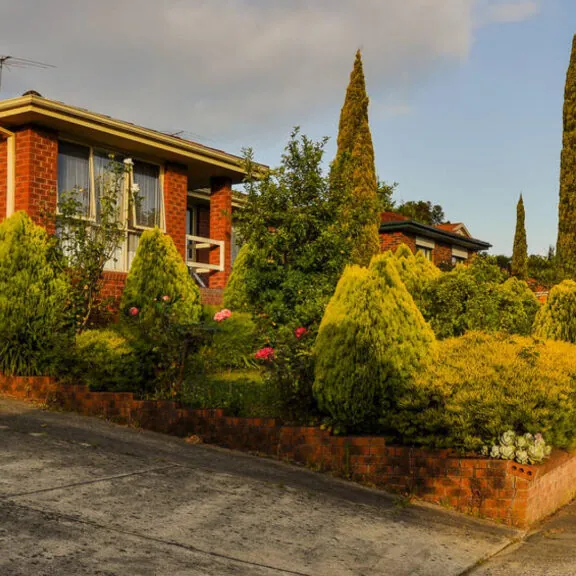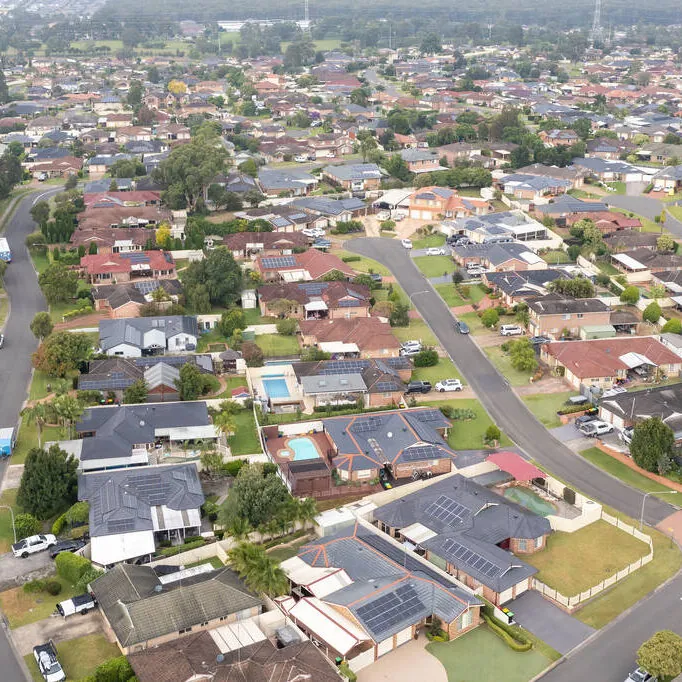You may be chasing more affordable prices, dreaming of a lifestyle change, or spotting investment potential in a different market altogether. No matter the reason, buying property in another state can be pretty tempting. But let’s be clear: buying interstate isn’t quite the same as finding a place down the road. You may have to […]
Cash-Out Refinancing: Tapping into Home Equity
As a homeowner in Australia, you may have built up significant equity in your property over the years. But did you know you can tap into this equity to access cash for various financial needs? This is where cash-out refinancing comes into play. In this article, let’s explore what cash-out refinancing is, how it works, its benefits and whether it might be the right option for you.
What is Cash-Out Refinancing? How Does It Work?
Cash-out refinancing involves replacing your existing mortgage with a new, larger mortgage and taking the difference in cash. Essentially, you are borrowing against the equity you have built up in your home. Here’s a step-by-step breakdown of how it works:
- Calculate Your Equity: Determine the current market value of your home and subtract the remaining balance on your mortgage. The difference is your home equity.
- Apply for a New Loan: Apply for a new mortgage or refinancing loan larger than your current mortgage balance.
- Receive the Cash: Once approved, the new loan pays off your existing mortgage, and you receive the difference in cash.
For example, if your home is worth $600,000 and you owe $300,000 on your mortgage, you have $300,000 in equity. If you refinance with a new loan of $450,000, you can take out $150,000 in cash while still owing $450,000 on your mortgage.
Cash-Out Refinancing vs Home Equity Loan: What’s the Difference?
While both options allow you to tap into your home equity, there are key differences:
Cash-out refinancing replaces your existing mortgage with a new, larger mortgage. You receive the difference in cash and continue making payments on the new loan. On the other hand, a home equity loan is a separate loan that allows you to borrow against your home equity. You receive a lump sum and make payments on this loan in addition to your existing mortgage. So, the key difference between the two is the number of loans you’ll have to repay. You’ll either have a new home loan (cash-out refinancing) or two separate home loans (existing mortgage + home equity loan).
Homeowners who have already built up substantial home equity are encouraged to choose cash-out refinancing, especially if they need bigger funding to invest in another property, renovate their home, fund their children’s college education or consolidate their debts. If you only need relatively smaller funding and can handle two repayments for a long time, you should highly consider home equity loans.

Benefits of Cash-Out Refinancing
Looking to utilise equity in your home? There are many good reasons to do cash-out refinancing. Here are some of its advantages:
- Access to Huge Funds: It provides a lump sum of cash for various purposes, such as home renovations, debt consolidation, or investment opportunities. Don’t want to renovate your property or start a business? These additional funds can also be utilised for other significant expenses, such as school fees, purchasing a new car, or taking a well-deserved holiday.
- Potentially Lower Interest Rates: If interest rates have dropped since you took out your original mortgage, you might secure a lower rate on the new loan. Speak with different lenders and compare what they can offer to get the best rate and loan features. Or better yet, let our mortgage brokers do the work for you; the best mortgage brokers can help you refinance with the lowest rate. They’ll also help you pick between fixed & variable rates when refinancing.
- Debt Consolidation: You can use the cash to pay off high-interest debts, potentially saving money on interest payments. Home loans usually come with significantly lower interest rates than credit cards and other types of personal loans. So, if you’ve got a few different debts, it could be worth refinancing a home loan and cashing out the difference to pay off these huge debts.
- Home Improvements: Investing in home improvements can transform your property while increasing its value, further building your equity. So, if you need another reason to do cash-out refinancing, see if your home will benefit from some makeover.
How Much Can You Borrow with a Cash-Out Refinance?
The amount you can borrow depends on several factors, including your home’s current market value, the loan-to-value ratio (LVR) allowed by the lender, and your creditworthiness. To give you an idea, most lenders in Australia let you borrow up to 80% of your property’s value when you choose to refinance and cash out.
For example, if your property is appraised at $750,000 and you owe $300,000, an 80% LVR would allow you to borrow up to $600,000. Subtracting your existing mortgage, you could potentially access $300,000 in cash. Still, the final figures hinge on different factors, so it is best to consult a mortgage broker for a more realistic estimate. Also, a mortgage or refinancing expert can help assess and optimise your borrowing power.
Considerations for Cash-Out Refinancing
At this point, cash-out refinancing looks promising, but before proceeding with it, consider the following:
- Increased Debt: Since you’re replacing your existing mortgage with a new and larger home loan, you increase your mortgage balance. That could mean higher monthly payments and more interest over the life of the loan.
- Interest Rates: Ensure the new interest rate is more favourable than your current rate. Otherwise, that could defeat the purpose of refinancing.
- Fees and Costs: Refinancing involves closing costs, appraisal fees, and other expenses. Ask all about these costs and evaluate whether the benefits of cash-out refinancing outweigh these costs.
- Market Conditions: Property values can fluctuate, affecting equity and borrowing capacity. So, explore your options while considering the current property market conditions and see whether it’s the right time to refinance.
How Deltos Finance Can Help
Cash-out refinancing doesn’t come without its challenges, but the good news is that you don’t have to face them alone. At Deltos Finance, our expert mortgage brokers in Hobart are here to guide you through the process. We can help you:
- Assess your home equity and borrowing capacity.
- Find the best refinancing options tailored to your needs.
- Understand the costs and benefits of cash-out refinancing.
- Dodge the common refinancing mistakes.
- Navigate the refinancing loan application process smoothly.
Contact us to explore how cash-out refinancing can help you. With our expertise, you can make informed decisions and unlock the potential of your home equity.
Enquire Now
Find Your Perfect Finance Solution
Let's discuss your finance needs. We’re here to help.
More posts from Deltos Finance

Suburbs with the Highest Rental Yield in Tasmania
The term “rental yield” is music to any property investor’s ears. It’s the key metric that indicates the annual return on your investment, essentially the percentage of the property’s value that comes back to you in rental income. In a market like Tasmania, which has been gaining traction for its overall investment appeal, pinpointing the […]

Launceston: A ‘Second Wind’ Property Market You Should Invest in Now
When talk turns to Tasmania’s property scene, it’s easy for the spotlight to shine brightly on Hobart, with its bustling waterfront and historic charm. But just a little further north, nestled at the head of the picturesque Tamar Valley, lies Launceston—a city that quietly hits its stride and presents a compelling proposition for savvy property […]

How Often Does Property Double in Value?
Every homeowner has likely dreamed of their property doubling in value in the future, turning into a valuable nest egg or funding their next big adventure. But how long does it actually take for a property to double in value? And how often does it happen? While there’s no magic eight-ball to predict the property […]

Stamp Duty Exemption for First-Home Buyers in Tasmania: Has It Paid Off?
Purchasing a property has historically come with major financial difficulties, especially for first-home buyers in Tasmania or any other state for that matter. The stamp duty is one of those most notable monetary challenges for homebuyers. Essentially, it’s a tax levied on property purchases that often adds tens of thousands of dollars to upfront costs. […]

Difference Between Airbnb and Traditional Renting in Hobart
Hobart’s property market has become a hotspot for investors largely because of its strong tourism demand and stable rental market. But that doesn’t mean all property investments in this Tasmania capital are a sure win. One factor to consider is deciding between short-term rentals like Airbnb and traditional long-term renting. Each option has distinct advantages […]

Is Launceston a Good Place to Live?
The short answer is yes, especially if you want a more affordable lifestyle without giving up access to key services, natural beauty, and long-term opportunities. Also, with its blend of heritage charm, steady economic growth, and a property market still within reach for many Australians, Launceston, Tasmania, is gaining momentum as a popular area for […]

Hobart Property Management Fees: A Complete Guide
You’ve already secured an investment loan and finalised your rental property purchase in Hobart. Now, it’s time to take action by listing the property for rent and managing it effectively to start generating rental income. But how much should you expect to spend on property management in Hobart, Tasmania? As Tasmania’s capital continues to attract […]

How Rising Property Prices Affect Your Home Loan and Buying Potential
Here’s the good news: the Australian real estate market has been experiencing significant growth in recent years, with house prices in major cities reaching record highs. It can be a huge win for homeowners and investors, especially those planning to sell their properties soon. However, this can be an issue for potential property buyers, including […]

Build Your Wealth with a Simple Guide to Using Your Home Equity
Building wealth requires adopting the right mindset and being strategic when using available financial instruments. Essentially, it’s about making your money work in your favour. But what if you don’t have enough cash to start creating wealth? There’s an underutilised strategy that we want to share with you, and that is leveraging your home’s equity—the […]


